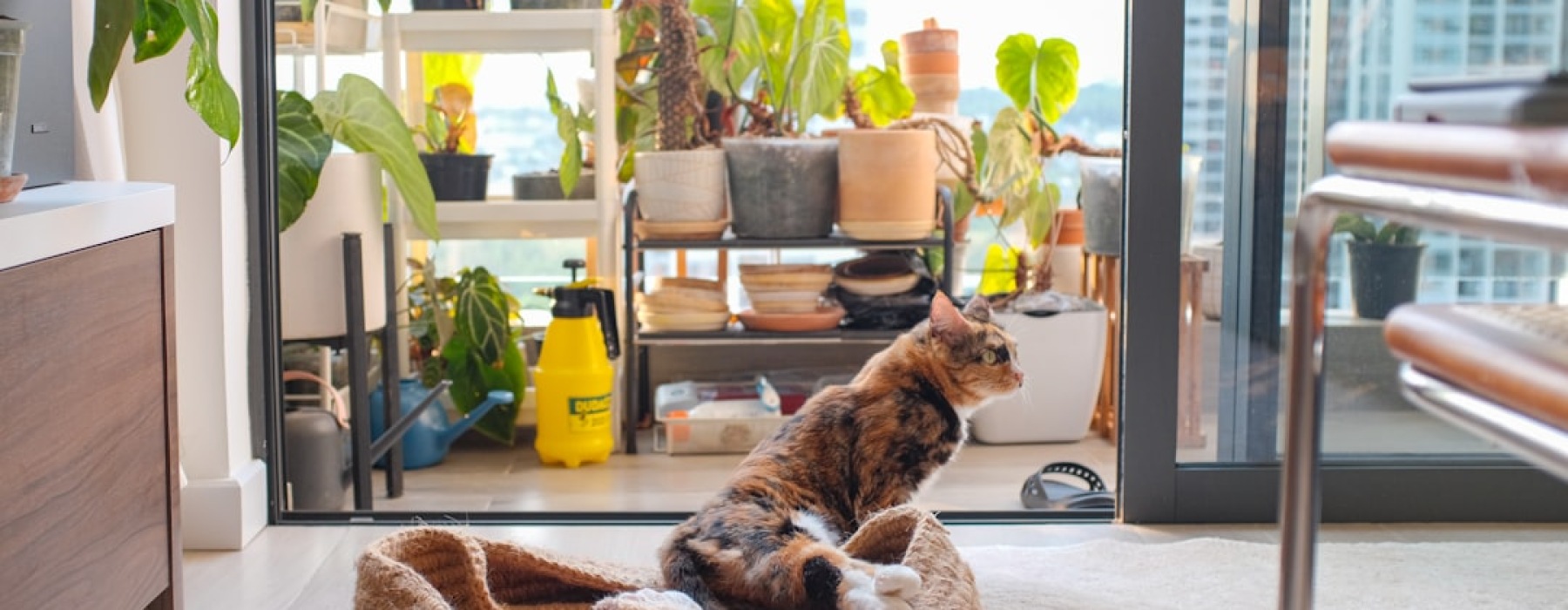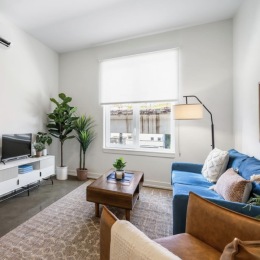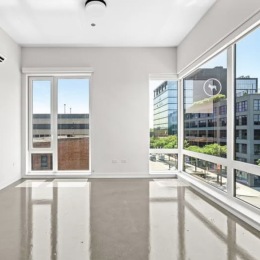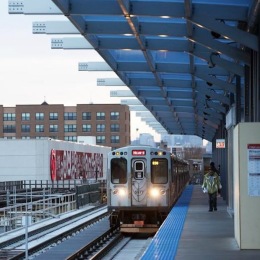Why Finding the Right Dog-Friendly Home Matters
Apartment complexes that allow dogs are more in demand than ever before. With 59% of renters owning at least one pet as of 2023, finding a welcoming home for you and your furry friend has become a top priority.
Quick Answer: How to Find Dog-Friendly Apartments
- Search Online: Use pet-friendly filters on Zillow, Apartments.com, and RentCafé
- Budget for Costs: Plan for pet deposits (40-85% of rent) and monthly pet rent ($50-100)
- Check Policies: Review breed restrictions, weight limits, and pet quantity rules
- Visit In Person: Tour the property and nearby dog parks before signing
- Prepare Documentation: Create a pet resume with photos, vet records, and references
The numbers tell the story clearly. Twice as many renters filter searches for pet-friendly options compared to any other amenity. Meanwhile, 55% of Zillow's rental listings now advertise as pet-friendly, showing how the market is responding to this growing demand.
But finding an apartment that simply "allows" dogs isn't enough anymore. Today's pet parents want communities that truly welcome their four-legged family members - with amenities like dog parks, pet washing stations, and even doggy daycare services.
This guide will walk you through everything you need to know about finding apartment complexes that don't just tolerate dogs, but celebrate them. From understanding pet policies and hidden costs to spotting the best amenities and negotiating with landlords, you'll have all the tools to find your perfect pet-friendly home.
Why Dog-Friendly Apartments Matter
The shift toward pet-friendly living isn't just a trend—it's a lifestyle revolution backed by real science. Scientific research on pet benefits shows that having a furry companion does wonders for your health, from reducing stress and anxiety to encouraging daily walks that keep you active.
But the benefits go way beyond personal wellness. When you live in apartment complexes that allow dogs, something magical happens in your building's hallways and courtyards. Your pup becomes the ultimate icebreaker, turning awkward elevator rides into friendly chats about favorite walking routes or the best local dog treats.
Dog parents often become the social glue of their communities. They're the ones organizing impromptu meetups at the dog run, sharing contact info for trusted pet sitters, and creating group chats about weekend dog park trips. It's like having a built-in friend network that revolves around wagging tails and wet noses.
The numbers tell an impressive story too. 59% of renters now have pets, and property managers have finded something interesting: pet parents make fantastic tenants. They tend to stay longer, take better care of their homes, and build stronger connections to their communities. It's a win-win situation where landlords can offer premium amenities while residents get genuine value for their furry family members.
Supply vs. Demand Snapshot
Here's where things get interesting. The rental market has completely flipped in the past decade. Major cities like Chicago, Los Angeles, and San Francisco now see more than half of available rentals welcoming pets—a dramatic change from when finding pet-friendly housing meant settling for whatever you could get.
Zillow reports that 55% of rental listings now advertise as pet-friendly, but here's the catch: demand still outpaces supply in many competitive markets. This means the best apartment complexes that allow dogs often have waiting lists, especially those with top-notch amenities like dog runs and pet spas.
The quality gap is real though. Some properties simply check the "pet-friendly" box without much thought, while others create genuine pet communities with dedicated facilities and services. The difference is night and day when you're looking for a place where both you and your dog will truly thrive.
Navigating Pet Policies & Costs in Apartment Complexes That Allow Dogs
Let's talk money – because understanding the true cost of living with your dog in an apartment can save you from sticker shock later. Apartment complexes that allow dogs typically structure their fees in three main ways, and knowing what to expect helps you budget like a pro.
Most properties will hit you with a refundable pet deposit that you'll get back if your furry friend doesn't redecorate the walls with their claws. Then there's usually a non-refundable pet fee – think of this as an administrative cost that covers extra insurance and processing. Finally, many places charge monthly pet rent on top of your regular rent, because apparently your dog needs to contribute to the household income too.
The good news? These costs vary widely depending on where you're looking and what the property offers. Some places bundle everything into one monthly fee, while others prefer larger upfront payments. The key is asking exactly what each fee covers and whether any portion comes back to you when you move out.
Here's something important: service animals are completely exempt from these fees under federal law. If you have a legitimate service animal, you shouldn't pay a penny extra. Emotional support animals have more limited protections, so you'll want to check your local laws and the specific property's policies.
| Fee Type | Typical Range | What It Covers | Refundable? |
|---|---|---|---|
| Pet Deposit | Varies by property | Potential damage repairs | Yes, if no damage |
| Pet Fee | One-time charge | Administrative costs, insurance | No |
| Monthly Pet Rent | Ongoing cost | Amenity access, maintenance | No |
Common Rules in Apartment Complexes That Allow Dogs
Every property has its own personality when it comes to pet rules, but you'll see some common themes. Weight limits are probably the most frequent restriction – some places cap it at smaller dogs, while others are more generous. The trend is moving toward focusing on behavior rather than size, which honestly makes more sense.
Breed restrictions are still out there, though they're becoming less common as more landlords realize that a dog's individual temperament matters more than their genetics. Some properties are completely breed-neutral, while others maintain lists of prohibited breeds. It's worth asking about their specific policies and whether they'd consider exceptions for well-trained dogs.
Most places limit you to one or two pets per unit, though luxury properties sometimes allow more. They'll also typically want to know about your dog's temperament and training. Some places even do meet-and-greet sessions – think of it as a playdate that determines your housing future.
Emotional support animals and service dogs have different rules under the Fair Housing Act. Service dogs have broad protections, while emotional support animals have more limited rights. Make sure you understand the distinction and have proper documentation if applicable.
Budget Checklist for Apartment Complexes That Allow Dogs
Beyond the apartment fees, living with a dog in the city comes with its own set of ongoing costs. Pet insurance can be a lifesaver when unexpected vet bills pop up – and they always seem to happen at the worst possible time.
Don't forget about city licensing fees – most municipalities require annual registration for dogs. It's usually not expensive, but it's legally required and some apartments will ask for proof of current licensing.
Regular grooming becomes more important in apartment living, especially if your building has carpeted hallways or you're sharing elevators with neighbors. Emergency veterinary funds are crucial because accidents don't wait for payday.
Monthly supplies like food, toys, and treats add up quickly, especially if your dog has expensive taste in kibble. The key is building these costs into your housing budget from the start, so you're not scrambling to cover unexpected expenses while also paying rent.
Planning ahead means you can focus on finding the perfect home for both you and your four-legged roommate, rather than stressing about whether you can afford it once you're there.
How to Find & Evaluate Dog-Friendly Communities
Finding the perfect home for you and your furry friend takes patience and strategy. Start your search at least two to three months before your ideal move-in date—apartment complexes that allow dogs in competitive markets often have waiting lists, especially for the best units.
The digital age has transformed apartment hunting for pet parents. Platforms like Apartment List and RentCafé now offer sophisticated pet-friendly filters that go beyond basic "pets allowed" checkboxes. You can narrow your search by specific breed restrictions, weight limits, and even amenities like dog parks or pet spas.
Your secret weapon? A well-crafted pet resume. This isn't just a cute idea—it's become essential in competitive markets. Include recent photos that show your dog's personality, current vaccination records, any training certificates, and glowing references from previous landlords or neighbors. Think of it as your dog's dating profile, but for apartments.
Understanding your rights as a renter helps too. More info about pet-friendly filtering can clarify what landlords can and cannot require during your search process.
Digital Search Hacks
Speed matters in today's rental market. Set up saved searches with email alerts across multiple platforms to catch new listings the moment they're posted. The best pet-friendly units often disappear within hours, not days.
Try the neighborhood-first approach using map-based searching. Before you fall in love with a specific building, zoom out and look at the bigger picture. Areas with multiple dog parks, veterinary clinics, and pet supply stores signal a truly pet-friendly community culture that extends beyond your apartment walls.
Mobile apps are your best friend for serious apartment hunting. Enable push notifications for new listings that match your criteria, and be ready to schedule viewings immediately. Some landlords at quality apartment complexes that allow dogs receive dozens of applications within 24 hours of posting.
Don't be afraid to expand your search radius slightly. Emerging neighborhoods often offer better value and more generous pet policies as they compete to attract residents. You might find a hidden gem that's perfect for both you and your dog.
In-Person Evaluation
No amount of virtual touring can replace walking through a property with your own eyes. Schedule your visit during peak dog activity times—typically early morning or evening—to see how the community really functions when multiple pets are out and about.
Pay close attention to pet area maintenance. Well-kept dog runs, promptly serviced waste stations, and adequate lighting tell you everything about how seriously the property management takes their pet amenities. Look for thoughtful touches like separate areas for large and small dogs, or weather-protected spaces for rainy days.
Venture beyond the property boundaries during your visit. Walk the surrounding streets to scout nearby parks, veterinary clinics, and pet stores. Note any busy roads or safety concerns that might affect your daily walks. The neighborhood matters just as much as the apartment itself.
Chat with current residents whenever possible. Dog parents are usually happy to share honest feedback about pet policies, community culture, and any challenges they've faced. These conversations often reveal important details that never make it into the glossy marketing materials—like whether the dog park actually gets cleaned regularly or if there are any unofficial rules about pet behavior.
Must-Have Amenities & Lifestyle Tips for Apartment Pups
Finding apartment complexes that allow dogs is just the beginning—the real magic happens when you find communities that truly understand what dogs need to flourish in urban environments. The best properties have moved far beyond simply tolerating pets to creating spaces where your furry family member can live their best life.
Think of it this way: your dog doesn't know they're living in an apartment. They just know whether they're happy, stimulated, and comfortable. The right amenities make all the difference in creating that perfect home environment.
A quality dog run transforms apartment living for both you and your pup. The best facilities feature separate areas for different sized dogs—because nobody wants their Chihuahua overwhelmed by an enthusiastic Great Dane. Look for proper drainage that prevents muddy paws, adequate shade for hot summer days, and engaging features like agility equipment or water fountains that keep things interesting.
Double-gated entries might seem like overkill until you've experienced the heart-stopping moment when an excited dog bolts toward freedom. These safety features, combined with comfortable seating areas for pet parents, show that a property truly understands the daily realities of dog ownership.
Pet washing stations have become game-changers, especially during Chicago's muddy spring months or snowy winters. These professional-grade facilities typically include raised tubs that save your back, high-quality shampoo dispensers, and powerful dryers that actually work. Using these stations keeps your apartment spotless while providing a stress-free grooming experience that's much easier than wrestling a wet dog in your bathroom.
The most forward-thinking properties are introducing amenities that would have seemed impossible just a few years ago. Indoor dog parks provide exercise options during harsh weather, while pet concierge services handle everything from dog walking to veterinary appointment coordination. Some luxury communities even feature on-site veterinary clinics, though these remain relatively rare. Apartments with Pet Spa represent the pinnacle of pet-friendly living, offering professional grooming services right in your building.
Creating a Happy Home Inside Small Spaces
Apartment living with dogs requires creativity, but it's absolutely doable with the right approach. The key is maximizing every square foot while keeping your dog mentally stimulated and emotionally secure.
Designated zones work wonders for helping dogs feel organized and comfortable. Create a cozy sleeping area with their bed and favorite blanket, establish a consistent feeding station away from foot traffic, and designate a play space where toys live. Dogs thrive on routine and clear boundaries, even in small spaces.
Toy rotation prevents the dreaded apartment dog boredom that leads to destructive behavior. Instead of leaving all toys out all the time, store them in different locations and rotate weekly. This keeps old toys feeling new and exciting. Puzzle feeders and treat-dispensing toys provide mental stimulation during those long work-from-home video calls when you can't provide direct attention.
Balcony safety deserves serious attention if you're lucky enough to have outdoor space. Ensure railings are secure and gaps are too small for curious noses or paws. Consider artificial grass or outdoor rugs to create a comfortable surface, but remember the golden rule: never leave dogs unattended on balconies, regardless of how secure they seem.
Scent games and indoor agility courses become lifesavers during extreme weather when outdoor exercise isn't practical. Hide treats around your apartment or create obstacle courses using furniture and household items. These activities tire out energetic dogs mentally, which is often more effective than physical exercise alone.
Community Perks to Prioritize
The most successful dog-friendly communities understand that pet ownership is inherently social. Look for properties that actively foster connections between residents through thoughtfully planned activities and services.
Regular dog social events create natural opportunities to meet neighbors and build lasting friendships. Whether it's weekend puppy playdates or training sessions with professional trainers, these gatherings transform apartment buildings into genuine communities. Your dog makes friends, you make friends, and suddenly you're not just living in a building—you're part of a neighborhood.
DNA waste programs might sound like science fiction, but they're becoming increasingly common in upscale properties. These systems collect DNA samples from all resident dogs, then test any improperly disposed waste to identify the responsible pet parent. While it might seem extreme, these programs effectively maintain clean common areas and ensure everyone takes responsibility for their pet's behavior.
Concierge pet services provide peace of mind for busy professionals who want the best for their dogs but struggle with demanding schedules. These services range from dog walking and pet sitting to coordinating veterinary appointments and even emergency pet care. Having these resources available through your building management removes a significant stress point from urban pet ownership.
On-site adoption events and partnerships with local shelters demonstrate a property's commitment to the broader pet community. These events often attract new residents who find the building through their love of animals, creating a self-selecting community of dedicated pet parents.
The bottom line? The best apartment complexes that allow dogs don't just accommodate pets—they celebrate them as valued community members who make apartment living richer and more connected for everyone involved.
Frequently Asked Questions about Apartment Complexes That Allow Dogs
How can I improve my chances of approval?
Getting approved at competitive apartment complexes that allow dogs requires more than just filling out an application. Think of it as introducing your furry family member to their potential new home community.
Start with a compelling pet resume that tells your dog's story. Include recent photos that capture their personality - maybe one of them sitting politely or playing gently with other dogs. Complete vaccination records and training certificates from organizations like the American Kennel Club show you're a responsible pet parent who invests in your dog's wellbeing.
References make all the difference. Previous landlords who can vouch for your dog's behavior carry serious weight. Neighbors, dog trainers, or even your veterinarian can provide character references that set you apart from other applicants.
Consider offering a higher pet deposit than required, especially in competitive markets. This shows financial responsibility and demonstrates you're serious about preventing damage. Some successful applicants even offer to pay several months of pet rent upfront.
The meet-and-greet session often seals the deal. When property managers interact with a well-behaved, friendly dog, initial concerns about pet policies often disappear. Bring your dog's favorite toy and some treats to showcase their best behavior - first impressions matter just as much for pets as they do for people.
What should I look for in the lease?
Reading the fine print becomes even more important when pets are involved. Every pet-related agreement should be documented in writing - verbal promises about pet policies have a way of disappearing when lease renewal time comes around.
Pay close attention to fee structures and what's actually refundable. Some properties use confusing language that makes fees appear refundable when they're permanent charges. True deposits should be returned if no damage occurs, while fees are one-time costs for the privilege of having a pet.
Damage clauses deserve special scrutiny. Reasonable lease language distinguishes between normal wear and tear (like minor scratches on doors) and significant damage requiring professional repair. You shouldn't be charged for typical apartment living with a pet.
Don't overlook policies about pet visitors and temporary care. Some leases restrict overnight pet guests or require approval for pet-sitting arrangements. Understanding these rules prevents awkward conversations later when your parents visit with their dog or you need a pet sitter.
What if a building says "no dogs"?
"No pets" doesn't always mean the end of the conversation. Many landlords make exceptions for responsible pet parents, especially when you can demonstrate your dog's training and your reliability as a tenant.
Request a personal meeting with the landlord or property manager, and bring your well-behaved dog along. Sometimes concerns about pets stem from negative past experiences, and meeting a calm, friendly dog can completely change perspectives. Come prepared with documentation of training certificates and behavioral assessments.
Financial incentives often open doors that seemed permanently closed. Consider offering additional security deposits or higher monthly rent to address perceived risks. When landlords see the financial benefits of accepting responsible pet parents, flexibility often follows.
Expand your search radius if you're hitting too many walls in your preferred neighborhood. Sometimes moving just a few blocks away reveals significantly more pet-friendly options. The perfect home for you and your dog might be in an area you hadn't originally considered.
If your dog provides legitimate therapeutic benefits, research local laws regarding emotional support animals. While regulations have become stricter, properly documented emotional support animals still receive housing protections that can override standard pet restrictions.
Conclusion
Your journey to find the perfect apartment complexes that allow dogs doesn't have to feel overwhelming. With the right approach and a little patience, you'll find a community that genuinely welcomes both you and your furry companion.
The rental market has transformed dramatically over the past few years. What used to be a challenging search for basic pet tolerance has evolved into a world of luxury amenities designed specifically for dog parents. From rooftop dog runs to professional pet spas, today's communities understand that your dog isn't just a pet—they're family.
Start your search early and come prepared with proper documentation. A well-crafted pet resume, complete vaccination records, and training certificates can make all the difference in competitive markets. Remember to budget for both upfront costs and ongoing expenses, including pet deposits, monthly pet rent, and emergency veterinary funds.
The best dog-friendly communities offer more than just permission to have pets. They create environments where dogs thrive through thoughtful amenities, regular social events, and policies that benefit the entire pet-owning community. Look for properties with dedicated dog areas, waste management programs, and staff who genuinely care about your pet's wellbeing.
At The Sally Apartments by Flats®, we've designed our Uptown Chicago community with your dog's happiness in mind. Our rooftop dog run provides the perfect space for your pup to play while you enjoy stunning city views. After those muddy park trips, our full-service pet spa makes cleanup a breeze. Combined with luxury amenities like in-unit laundry and rooftop terrace access, we've created the ideal environment for modern pet parents.
Don't settle for apartments that merely tolerate dogs when you can find communities that celebrate them. The extra effort you put into your search will pay off in years of happy memories with your four-legged friend.
Ready to experience luxury pet-friendly living in the heart of Chicago? Visit our apartments for rent: dog friendly page to explore our floor plans, schedule a tour, and find why The Sally Apartments by Flats® is the perfect place for you and your dog to call home.
Your ideal dog-friendly apartment is out there waiting. With the knowledge and strategies from this guide, you're ready to find a community that will welcome both you and your beloved companion with open arms.










